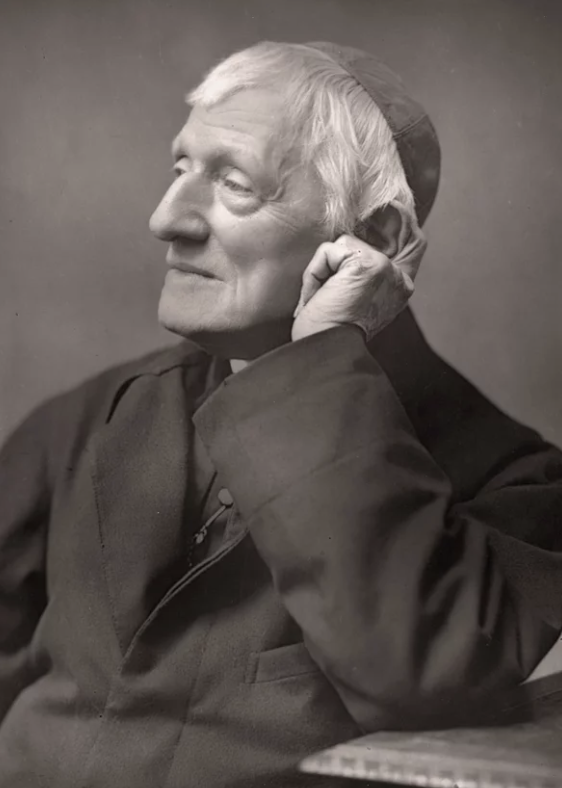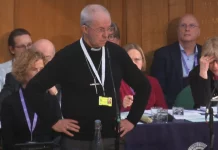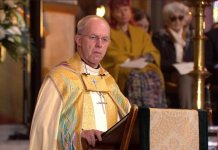St John Henry Newman once considered the possibility of the crisis that would emerge if a Church council or a pope introduced a doctrine that contradicted a previous council or a pope. It would shatter the notion of doctrinal development.
At first sight the recent document Fiducia Supplicans suggests that this might have happened. Commentators have been trying to square its content with the previous declaration of the Congregation for the Doctrine of the Faith (CDF) in 2021 that it was not licit to bless homosexual relationships.
However, any careful reading of this latest text shows clearly that the document sets out to specifically maintain and restate the Church’s teaching on marriage. Having done that, it nonetheless sets out a platform for the provision of a blessing for those who are in disordered relationships.
It is again made clear that there are intended to be safeguards to avoid giving the impression that any blessing might suggest a wedding or a union is being blessed. There must be no liturgy and only spontaneity. The theological assumption appears to be that there is a sufficient gap between a liturgical blessing and a spontaneous one that defends the integrity of Church teaching. Whether that is the case or ought to be, is not examined.
This allows the cosmetically reassuring response: “Nothing has happened, nothing has changed in church teaching.”
And yet at the same time, newspapers and public media across the world have announced that the Pope has changed the teaching of the Catholic Church and agreed to gay blessings.
The situation created by Fiducia Supplicans is both more subtle, and in the eyes of critics more insidious.
If it had changed Church doctrine the situation that St John Henry Newman feared would be upon us. The Church would face a crisis in its understanding of how to understand the magisterium and the consistent development of doctrine. There would be a formal challenge to the Pope and the Dicastery for the Doctrine of the Faith (DDF), and a challenge of unique theological and political proportions.
But the Vatican has not taken that route. It has followed a different strategy. It has set out to appear to change the Church’s teaching without in fact changing it. The distinction is achieved by changing the practice but not the principle. Orthodoxy remains untarnished, but orthopraxy—correct practise and worship—has been subverted.
This is for many confusing. Once again, the hallmarks that have coloured the last ten years or so of this papacy re-emerge: ambiguity, confusion and perhaps chaos.
On one hand the Church teaches that a same sex union cannot be blessed, but on the other hand, same sex people who are in a relationship are invited to present themselves for a blessing.
This blessing is of a very particular and finessed kind. It blesses the two people as individuals, but not as a couple. Yet, they are invited to present themselves as a couple. They ask for this as a couple; they arrive as a couple, they leave as a couple. They appear to be blessed as a couple, and yet, very clearly, Fiducia Supplicans states they are not being blessed as a couple. Their disordered union has not been blessed. How could it be without changing Church teaching?
At this point, in some act of metaphysical subtlety, too swift for the eye to follow or the mind to understand, they have been blessed as “individuals who presented as a couple”.
To some this may seem a little Jesuitical. Is it a distinction without a difference, or a distinction with a difference?
The defence that Church teaching has not changed but only appears to have been changed has not widely commended itself.
Eric Sammonds, editor-in-chief of Crisis Magazine comments:
“The most insidious aspect of modern heresy is that it loudly proclaims itself to be orthodox. But it divorces orthodoxy from orthopraxy [proper actions]. So, while Fernández affirms ‘the Church’s doctrine on this point remains firm’, the reality is that blessing sinful romantic relationships undermines that very doctrine.”
The systematic theologian Fr Thomas Weinandy writes:
“To bless couples in irregular marriages or same-sex couples without giving the impression that the Church is not validating their sexual activity is a charade. All those present at such blessings know, without a doubt, that such relationships are sexual in nature. No one is fooled. Actually, they are rejoicing that such sexual relations are being blessed. That’s the point of these blessings. It is not their sexual abstinence being blessed, but their sexual indulgence.”
One should avoid attributing motive to the authors of Fiducia Supplicans. But if they intended to arrive at a position where the practice of the Church subverted the teaching of the Church without the need to change or challenge the teaching, they appear to have succeeded.
Except that there is an instinctive reflex for reality within the Church that may resist the imposition of what appears to be heteropraxis and alternative actions. The homespun wisdom amongst hunters or the rural community that “If it looks like a duck, swims like a duck, and quacks like a duck, then it probably is a duck”, becomes for faithful Catholics: “If it looks like heresy, reads like heresy, and effects heresy, then it probably is heresy.”
And so as of the time of writing a number of dioceses are expressing reserve or repudiation.
The Archdiocese of Saint Mary in Astana, Kazakhstan, declared that the text endorsed practices that contradicted “Divine Revelation and the uninterrupted, bimillennial doctrine and practice of the Catholic Church” and therefore “we exhort and prohibit priests and the faithful of the Archdiocese of Saint Mary in Astana from accepting or performing any form of blessing whatsoever of couples in an irregular situation and same-sex couples”.
The Catholic bishops of Nigeria have stated: “There is…no possibility in the Church of blessing same-sex unions & activities. That would go against God’s law, the teachings of the Church, the laws of our nation & the cultural sensibilities of our people.”
And the British Confraternity of Catholic Clergy have stated: “We believe that genuine charity always follows true doctrine and that such blessings would work against the legitimate care a priest owes to his flock. With honest parresia and from our own experience as pastors we conclude that such blessings are pastorally and practically inadmissible.”
A diocese in Austria mandated its clergy to offer blessings along the lines the document gave permission for; but then withdrew it. And perhaps that is the fault line along which the struggle to defend the teaching of the Church and the apostolic faith will develop.
The extent to which heteropraxis is resisted by faithful bishops and orthodox Catholics will be an indication of the integrity of the Catholic witness to a world alre










